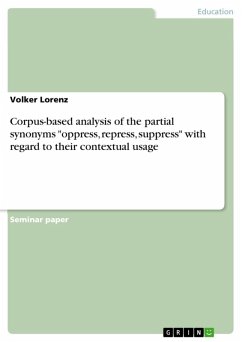Seminar paper from the year 2010 in the subject Didactics for the subject English - Applied Geography, grade: 1,0, University of Tubingen (Seminar für Englische Philologie), course: The African-American Civil Rights Movement (1954- 1971), language: English, abstract: The African American Civil Rights Movement is a phenomenon that shows how our collective memory works: It proves that it is very selectively. Although there were as many smaller and bigger steps to take in the movement, as you need to reach the top of the Burj Chalifa, most of us remember not many more than the 'March on Washington'. Although a lot of people involved in the movement are worth mentioning, we know almost exclusively Dr. Martin Luther King, Jr. and, at best, additionally Rosa Parks. And like our collective memory has forgotten about most of the good things, it has forgotten about the controversies and faults of the movement - except for its unforgotten bad boy Malcolm X, who never got the second chance, he apparently deserved. But I do not generally want to talk about the neglected heroes, the Malcolm X's and Bayard Rustins. I want to talk about a specific group of tragic heroes and heroines that are also often forgotten in this context: The children. It was the fact that poor Emmett Till was a little boy that shocked the masses; there were nine pupils trying to attend the school in Littlerock who deserve to be called heroes; and it were also children, who let themselves get bitten by dogs, mistreated by the police, and who finally went to jail during the Children's Crusade. Since the Children's Crusade was one of the most controversial steps the leaders of the movement took, amongst them also Dr. Martin Luther King, I want to discuss the role of sacrificing children and of the approving leaders in this context. First, I will give a short overview of the Children's Crusade; then, I will name the motives and justifications of the initiators. I, finally, want to compare the discussed roles to our present perceptions and memories of them. I think that we should uphold the ideals of the movement; therefore, we should equally and justly remember how the facts really were and who was involved in them.
Dieser Download kann aus rechtlichen Gründen nur mit Rechnungsadresse in A, B, BG, CY, CZ, D, DK, EW, E, FIN, F, GR, HR, H, IRL, I, LT, L, LR, M, NL, PL, P, R, S, SLO, SK ausgeliefert werden.









